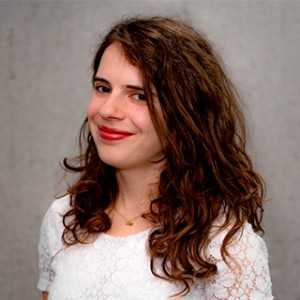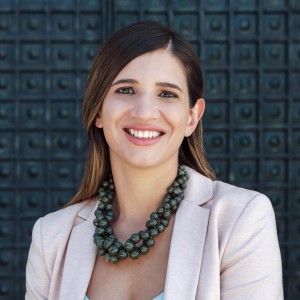Instituto de Neurociencias
Neuroscientific research is a broad field that includes clinical neurology, neurophysiology, psychophysiology, and cognitive science. The research carried out by the Institute aims to answer questions related to the central nervous system, from clinical neurological care to the relationship between the brain and behavior. The research is published in peer-reviewed academic journals and presented at national and international conferences.
Cognitive Sciences, Neuropsychiatry, Neurophysiology, Psychophysiology, Neuropsychological Rehabilitation, Neuropsychology/Behavioral Neurology, Clinical Neurology
To promote the study of the central nervous system, as well as evidence-based practice to treat conditions involving the brain. This includes facilitating academic and clinical research in neurosciences through the scientific method and the scientific dissemination of information through publications, conferences, etc.
To create a research center, with international recognition, dedicated to the scientific and multidisciplinary study of the human central nervous system.
Personal
Director
Directora
Teléfonos: 297 1700 ext.: 2055
Correo electrónico: neurociencias@usfq.edu.ec
Coordinators
Ms. María Sol Garcés
oordinadora de vinculación
Teléfono: (+593 2) 297-1700 ext 1338
Correo institucional: sgarces@usfq.edu.ec
Ms. Isabela Lara
Coordinadora de administración y vinculación
Teléfono: (+593 2) 297-1700 ext. 1538
Correo institucional: ilara@asig.com.ec
USFQ Research Associates:
List of members at USFQ and their neuroscientific interests
Graham Pluck (Experimental Psychology)
Dr. Nelson Maldonado (cuidados neurocríticos)
Dra. Ana Trueba (psicofisiología)
Dra. Nergiz Turgut (neuropsicología clínica)
Ms María Sol Garcés (neuropsiquiatría cognitiva)
Ms Isabela Lara (Psicologia Cognitiva)
Dra. Helen Johnson (neurociencia cognitiva)
Dra. Michelle Grunauer (salud mental / pediatría)
Dra. Laura Botani (neurocirugía)
Dr. Danny Rivero (neurología)
Dra. Daniela Di Capua (epileptologia)
Dr. Diego Benítez (electroencefalografía y procesamiento de señales)
Dr. Carlos Loza (inteligencia artificial)
Dr. Noel Pérez Pérez (visión computacional)
External Associate Researchers:
Dr. Jose Suarez, Johns Hopkins University
Dr. Panos Varelas, Henry Ford Hospital, Michigan
Dr. Edgar Samaniego, University of Iowa
Dr. Santiago Ortega, University of Iowa
Dr. Christos Lazaridis, University of Chicago
Dr. Daniel Ontaneda, Cleveland Clinic Foundation
Dr. Christopher Lewandowski, Henry Ford Hospital, Michigan
Dr. Chethan Rao, Baylor College of Medicine
Dr. David Burdette, Spectrum Health
Dr. Rhonna Shatz, University of Cincinnati
Paulina Buffle, University of Geneva
Dr. Diego Jiménez-Jiménez, Institute of Neurology, University College London
Dr. Patricia Bravo, UNACH, Ecuador
Publications
Bermejo-Martins, E., Luis, E. O., Sarrionandia, A., Martínez, M., Garcés, M. S., Oliveros, E. Y., Cortés, C., Belintxon, M., & Fernández-Berrocal, P. (2021). Different Responses to Stress, Health Practices and Self-care during COVID-19 Lockdown: A Stratified Analysis. International Journal of Environmental Research and Public Health, 18, 1-19.
Pluck, G. (2020). Cognitive Ability, Reward Processing and Personality Associated with Different Aspects of Smartphone Use. PsyArXiv. https://doi.org/10.31234/osf.io/sqfu2
Pluck, G., Barajas, B. M., Hernandez‐Rodriguez, J. L., & Martínez, M. A. (2020). Language ability and adult homelessness. International Journal of Language & Communication Disorders, 55(3), 332–344. https://doi.org/10.1111/1460-6984.12521
Pluck, G., Bravo Mancero, P., Ortíz Encalada, P. A., Urquizo Alcívar, A. M., Maldonado Gavilanez, C. E., & Chacon, P. (2020). Differential associations of neurobehavioral traits and cognitive ability to academic achievement in higher education. Trends in Neuroscience and Education, 18, 100124. https://doi.org/10.1016/j.tine.2019.100124
Pluck, G., Córdova, M. A., Bock, C., Chalen, I., & Trueba, A. F. (2021). Socio-economic status, executive functions, and theory of mind ability in adolescents: Relationships with language ability and cortisol. British Journal of Developmental Psychology, 39(1), 19–38. https://doi.org/10.1111/bjdp.12354
Pluck, G., Crespo-Andrade, C., Parreño, P., Haro, K. I., Martínez, M. A., & Pontón, S. C. (2020). Executive functions and intelligent goal-directed behavior: A neuropsychological approach to understanding success using professional sales as a real-life measure. Psychology & Neuroscience, 13(2), 158–175. https://doi.org/10.1037/pne0000195
Schenke, N., Franke, R., Puschmann, S., Turgut, N., Kastrup, A., Thiel, C. M., & Hildebrandt, H. (2020). Can auditory cues improve visuo-spatial neglect? Results of two pilot studies. Neuropsychological Rehabilitation, 1–21. https://doi.org/10.1080/09602011.2020.1727931
Turgut, N. (2020). Prismenadaptation in der Behandlung des Neglekts-Kommt eine deutlich erleichterte Therapieimplementierung? Neurologie & Rehabilitation, 3, 187–188.
Pluck, G., Bravo Mancero, P., Maldonado Gavilánez, C. E. Urquizo Alcívar, A .M., Ortíz Encalada, P. A., Tello Carrasco, E. …Trueba, A. F. (2019). Modulation of striatum based non-declarative and medial temporal lobe based declarative memory predicts academic achievement at university level. Trends in Neuroscience and Education, 14, 1-10. Doi:10.1016/j.tine.2018.11.002.
Pluck, G. & López-Águila, M. A. (2019). Induction of fear but no effects on cognitive fluency by theta frequency auditory binaural beat stimulation. Psychology & Neuroscience, 12(1), 53-64. Doi: 10.1037/pne0000166.
Samaniego, E. A., Roa, J. A., Martinez-Burbano, B., Ortega-Gutierrez, S., Hasan, D. M., Jibaja, M., … & Maldonado, N. (2019). Angiographic Features of Intracranial Aneurysms in Ecuador. Journal of Stroke and Cerebrovascular Diseases, 28(3), 761-767. Doi: 10.1016/j.jstrokecerebrovasdis.2018.11.020.
Alústiza, I., Garcés, M. S., Solanes, A., Goena, J., Ortuño, M., Molero, P., … & Ortuño, F. (2018). Aberrant timing and oddball detection in Schizophrenia: findings from a signed differential mapping meta-analysis. Heliyon, 4(12), e01004. Doi: 10.1016/j.heliyon.2018.e01004.
Pluck, G., Banda-Cruz, D. R., Andrade-Guimaraes, M. V., & Trueba, A. F. (2018). Socioeconomic deprivation and the development of neuropsychological functions: A study with “street children” in Ecuador. Child Neuropsychology, 24(4), 510-523. Doi: 10.1080/09297049.2017.1294150.
Ritz, T., Trueba, A. F., Vogel, P. D., Auchus, R. J., & Rosenfield, D. (2018). Exhaled nitric oxide and vascular endothelial growth factor as predictors of cold symptoms after stress. Biological Psychology, 132, 116-124. Doi: 10.1016/j.biopsycho.2017.11.006.
Rivero Rodríguez, D., Scherle Matamoros, C., Sam, K., Dicapua Sacoto, D., Maldonado Samaniego N., & Pernas, Y. (2018). Evaluation of STESS, mRSTESS, and EMSE to predict high disability and mortality at hospital discharge in ecuadorian patients with status epilepticus. Neurocritical Care, 29(3), 413-418. Doi:10.1007/s12028-018-0549-1.
Rivero Rodríguez, D., Scherle Matamoros, C., Pillajo Sulca, G. E., & Pernas Sánchez, Y. (2018). Isolated unilateral oculomotor palsy after mild traumatic brain injury. Neurocirugia, 29(6), 314-317. Doi: 10.1016/j.neucir.2018.05.005.
Rivero Rodríguez, D., Scherle Matamoros, C., Dicapua Sacoto, D., & Maldonado Samaniego. N. (2018). Double cortex syndrome in a male patient without lissencephaly. Neurologia. Doi: 10.1016/j.nrl.2017.12.002.
Turgut, N., Miranda, M., Kastrup, A., Eling, P., & Hildebrandt, H. (2018). tDCS combined with optokinetic drift reduces egocentric neglect in severely impaired post-acute patients. Neuropsychological Rehabilitation, 28(4), 515-526. Doi: 10.1080/09602011.2016.1202120.
Turgut, N., Möller, L., Dengler, K., Steinberg, K., Sprenger, A., Eling, P., … & Hildebrandt, H. (2018). Adaptive cueing treatment of neglect in stroke patients leads to improvements in activities of daily living: A randomized controlled, crossover trial. Neurorehabilitation and Neural Repair, 32(11), 988-998. Doi: 10.1177/1545968318807054.
Loza, C. A., Okun, M. S., & Príncipe, J. C. (2017). A marked point process framework for extracellular electrical potentials. Frontiers in Systems Neuroscience, 11, 95. Doi: 10.3389/fnsys.2017.00095.
Rivero Rodríguez, D., Scherle Matamoros, C., Fernández Cúe, L., Miranda Hernández, J.L., Pernas Sánchez, Y., & Pérez Nellar, J. (2017). Factors associated with poor outcome for aneurysmal subarachnoid haemorrhage in a series of 334 patients. Neurología, 32(1), 15-21. Doi: 10.1016/j.nrleng.2014.12.016.
Turgut, N., Mödden, C., Brumund, T., Eling, P., & Hildebrandt, H. (2017). A study on the independence of egocentric and allocentric neglect. Cortex, 96, 95-104. Doi: 10.1016/j.cortex.2017.09.005.
Pluck, G., Amraoui, D., & Fornell-Villalobos, I. (in press). Brief Communication: Reliability of the D-KEFS Tower Test in samples of children and adolescents in Ecuador. Applied Neuropsychology: Child.
Scherle Matamoros, C.E. & Rivero Rodríguez, D. (2019). Parámetros hemodinámicos cerebrales, determinados mediante Doppler transcraneal, en un grupo de voluntarios sanos a 2.850 metros de altura. Radiología. Doi: 10.1016/j.rx.2019.04.003.
Rivero Rodríguez, D., Scherle Matamoros, C., & Pernas Sánchez, Y. (2018). Adie pupil. Pilocarpine test. Medicina Clínica, 151, 170. Doi: 10.1016/j.medcli.2017.10.024.
Rivero Rodríguez, D., Scherle Matamoros C.E., Di Capua Sacoto, D., Jibaja Vega, M., Santacruz Villalba, M.J., Mullo Almache, E.A. … Galarza Galarza, K.A. (2018). Estatus epiléptico. factores asociados a una evolución desfavorable en un centro terciario. Revista Ecuatoriana de Neurología, 27, 25-30.
Scherle Matamoros, C.E., Suarez J.I., Samaniego, N.M. & Rivero Rodríguez, D. (2018) Neurosonología Vascular. Medellín (Colombia): Amolca.


